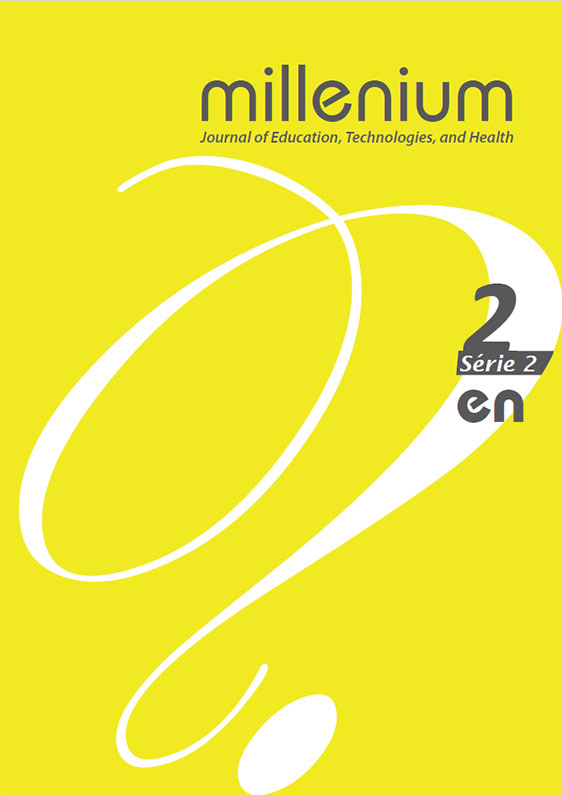Surveillance and prevention culicidae vectors - the portuguese case
DOI:
https://doi.org/10.29352/mill0202.05.00127Keywords:
Culicids, Dengue, Zika, Environmental HealthAbstract
Introduction: Dengue and Zika are considered a disease of the XXI re-emerging century are a major public health problems in the world, not only because it affects thousands of people, since the mosquito Aedes aegypti tends to reproduce in homes but also because it is considered one of the most important viral diseases transmitted by animals. Health surveillance for Environmental Health of the environment, and its mission is to analyze, prevent and correct the health risks, which are environmental or potential. It is in this sense that environmental health is as important to end this disease, and in the meantime to prevent it does not affect human health.
Objetives: Tracking the presence of Culicidae Vectors in Portugal.
Methods: The study is based on data from DGS program and INSA, Revive, which plating the presence of mosquitoes and larvae that can cause contamination and diseases originating from mosquitoes, the analysis of these data and the other allows us to see the need for prophylactic care to have in our country, especially in Madeira, which, for its location and climate can foster the emergence of these.
Results: Samples and data collected by the REVIVE program did not detect the presence of the virus mosquitoes in continental Portugal, however climate change that Portugal crosses can cause the onset of mosquito vectors of carriers, so you want to public education for preventive measures can combat the proliferation of mosquitoes mosquito carriers. Conclusions: Although there are no mosquitoes, as educate the public for mosquito prevention measures. Thus, this study provides a number of solutions to minimize the proliferation mosquito vectors.
Downloads
References
Abrantes, P., & Silveira, H. (2009). Alterações climáticas na Europa: Efeito nas doenças parasitárias humanas. Revista Portuguesa de Saúde Pública, 27(2), 98-102.
Agência Portuguesa do Ambiente. (2015). Estratégia Nacional de Adaptação às Alterações Climáticas (ENAAC 2020). Disponível em: www.apambiente.pt
Câmara Municipal de Cascais (2011). Plano estratégico de Cascais face às alterações climáticas. Disponível em: http://www.cm-cascais.pt/projeto/plano-estrategico-de-cascais-face-alteracoes-climaticas
Câmara Municipal do Funchal. (2012). Plano municipal de combate ao mosquito: Vetor de transmissão da dengue. Disponível em: http://www1.cm-funchal.pt/cmf/images/stories/destaques/2012/11/planoMunicipalCombateMosquito/PlanoCombateMosquito.pdf
Chivian, E. (2008). Biodiversity: Its importance to human health. Disponível em: http://chge.med.harvard.edu/publications/documents/Biodiversity_v2_screen.pdf .
Instituto de Medicina Molecular da Faculdade de Medicina da Universidade de Lisboa & Universidade Federal do Rio de Janeiro. (2007). Dengue. Disponível em: http://dengue.biochemistry-imm.org/cat.php?catid=10IA
Saúde. (2012). Mosquitos. Disponível em: http://iasaude.sras.gov-madeira.pt/mosquitos/
Departamento de Doenças Infeciosas - Centro de Estudos de Vetores e Doenças Infeciosas Doutor Francisco Cambourna (2014). Relatório Revive: Culicídeos e Ixodídeos. Lisboa: Instituto Nacional de Saúde Doutor Ricardo Jorge, IP. ISBN: 978-972-8643-92-8.
Rodhain, F., & Perez, C. (1997). Précis d’entomologie médicale et vétérinaire: Notions d’épidémiologie des maladies à vecteurs. Paris: Maloin.
World Health Organization (1997). Dengue hemorrhagic fever: Diagnosis, treatment, prevention and control. Geneva: WHO.
Santos, D., & Aguiar, R. (2006). Impactos e medidas de adaptação às alterações climáticas no arquipélago da Madeira: Projecto CLIMAAT II, 110. Funchal: Direccão Regional do Ambiente da Madeira.
Downloads
How to Cite
Issue
Section
License
Authors who submit proposals for this journal agree to the following terms:
a) Articles are published under the Licença Creative Commons (CC BY 4.0), in full open-access, without any cost or fees of any kind to the author or the reader;
b) The authors retain copyright and grant the journal right of first publication, allowing the free sharing of work, provided it is correctly attributed the authorship and initial publication in this journal;
c) The authors are permitted to take on additional contracts separately for non-exclusive distribution of the version of the work published in this journal (eg, post it to an institutional repository or as a book), with an acknowledgment of its initial publication in this journal;
d) Authors are permitted and encouraged to publish and distribute their work online (eg, in institutional repositories or on their website) as it can lead to productive exchanges, as well as increase the impact and citation of published work
Documents required for submission
Article template (Editable format)





